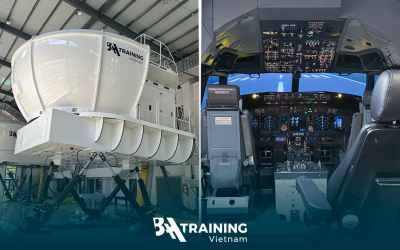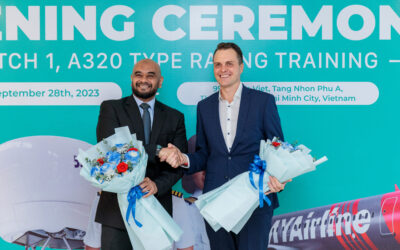Recently the market has been filled with positive news for those who see themselves in a pilot seat – pilot cadet programmes have returned into the market. Probably you won’t be wrong saying that a cadet programme is the fastest and most assuring way to become a pilot. Even though it may look as an easy way, it will still be a challenging one. Surprisingly challenges will start with the first steps – cadet assessment. So actually what is it and how to perform at your best?
What to expect during Cadet assessment?
The main purpose of the cadet assessment does not differ from the Ab Initio pilot assessment – it is designed to evaluate one’s suitability to become a pilot. It may consist of various tests depending on the organization which conducts it, however, based on BAA Training experience (which, by the way, at the moment is running 4 Cadet Programmes) it has several stages: Documentation screening, Profile XT, English proficiency, Compass test, Structural preselection interview, Final interview with an airline, Decision making. Know what to expect to improve your performance.
Documentation screening is the very first stage of pre-screening measuring whether a candidate meets the main requirements to join the Cadet programme. If the candidate meets these requirements he will be invited to the Cadet assessment.
Profile XT test measures your personality: the way you think, assess and react to various situations, what your personal characteristics are dominant. In other words, this is performed to see what kind of person you are and whether your personality is suitable for work in the cockpit of the certain airline.
English proficiency test helps to evaluate your English language knowledge. As you know, English language is the official language of aviation. This means that pilot studies will be delivered in English. In addition to that, the importance of pilots being able to have smooth communication is vital. Yes, vital. According to the Boeing, human error has been documented as a primary contributor to more than 70% of commercial airplane hull-loss accidents and, unfortunately, some of such accidents are caused due to general miscommunication.
COMPASS test is a computerized pilot aptitude screening system. Its modules include: hand-eye-foot coordination, eye-hand coordination, spatial orientation, multi-task management, mental calculations, short-term memory, and tech-test. Some Ab Initio Schools might use a slightly different number of modules to test the applicants. Just like for any school exam, an applicant can also prepare for the COMPASS test. However, there is no secret that for some people spatial, eye-hand coordination, or math skills are natural, but it does not mean that such skills cannot be worked on and developed. More about COMPASS test you can find here .
Structural preselection interview is a resumptive part of your assessment. Eye to eye conversation helps to understand your approach to life, studies and career, what your lifestyle is, and what your plans are. It also helps to check whether your tests results meet the person you are.
Final interview with an airline is your last chance to shine. The airline will be provided with your assessment results and will have a chance to personally asses your potential to represent the airline culture. In addition to that, it is a chance for you to learn more about the company which may become your first employer. Afterwards, the final call whether you will be chosen to join Cadet program or not will be made by the airline.
Business attire attitude all the way
In a way, cadet assessment is just like any other job interview as in any other job interviews the potential employer will assess your professional skills and personal suitability for the job, regarding the company’s culture. If going for a usual job interview requires business attire, so why cadet assessment should be treated differently? Your evaluation starts not from saying “hello” at the interview, it starts the moment when you decide to apply.
Documentation. When you decide to apply make sure that your documentation is in order, that your CV is clear and with no mistakes. Follow the requirements for documentation: do not send more or less information than is required, that shows, that either you are sloppy or inattentive. Do not try to hide any kind of information or cover it – assessment team will figure it out, and once they do, your image will suffer. It is important to understand, that evaluation starts at this point, and if other candidates have prepared their documentation as required, and you have made mistakes, that only means your chances to be invited to another stage of assessment are shrinking.
Business attire. Treat your cadet assessment as your job interview. That means do not be late, choose business attire for you appearance. Be focused, sharp and polite. And most importantly, act same while having your assessment online. Technologies make it easier to conduct cadet assessment, especially when candidates are from all over the world, but that does not mean, that doing it online makes it less important. Business attire attitude all the way, please.
Do your homework. This is ageless advice, still, a lot of candidates forget it while applying for the Cadet programme. Make sure you have looked into the company you are applying for, the programme that you are applying – it all shows the level of your intention and motivation. Be your best version.








